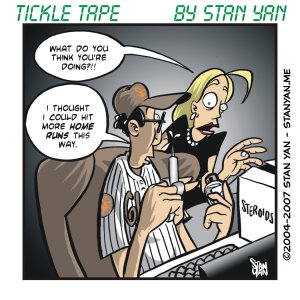You’ve invested 25% of your capital in a stock that your analysis had predicted would increase. Your expectations haven’t been supported, however. The price has been steadily declining. You think, “I did such a careful and detailed analysis. I’ve spent a lot of time studying the fundamentals of this company. I can’t believe it’s going down.” At this point, you may hope that the position will reverse, and refuse to close it out. It’s easier to keep it open than face the regret of a bad decision and accept the loss. This is called the sunk cost effect: A person increases one’s commitment to a losing position because a great deal of time, effort, and/or money has been spent.
The most obvious and blatant example of the sunk cost effect is when we have invested a large percentage of our capital in a losing position, and we don’t want to admit that we have lost what we have invested. However, there are other, more subtle ways of experiencing the sunk cost effect. Most people don’t consider them, but they may still influence investment decisions.
The adage “time is money” illustrates how there are other ways to “lose money” by just putting in time and effort into an investment. For example, let’s say that you study a particular company closely. You read reports on the company’s fundamentals, and you follow the stock price daily, noting price changes that correspond to company announcements and significant events in the industry. The more effort you expend on preparation and analysis, the greater the sunk costs you will experience. There is a strong tendency to justify the time and effort you have expended.
Why spend so much time and effort studying this company if you don’t plan to invest in it? This tendency to want to justify your behaviour will gnaw at you. If you are not aware of it and are not trying to control it, you will tend to want to invest (long or short) in the stock, even when you know you should stay out, and wait for another opportunity. It’s useful to be aware of this subtle effect. Ask yourself, “Do I want to invest because I see a real opportunity or am I merely trying to justify the amount of effort I’ve put in?” It’s important to be aware of how this subtle yet powerful influence can lead you to make a decision you will regret later.
Overcoming this subtle influence is difficult. It’s a good idea to study companies closely and capitalize on an opportunity when one arises, but don’t overdo it. Remember that expending too much effort has a subtle impact. Try to overcome it. Remind yourself that you don’t have to invest. Your study and preparation will pay off big someday, but learn to wait for the right opportunity.
Be aware of both the subtle and blatant ways that the sunk cost effect can influence your behaviour. Try to consider whether or not sunk costs are influencing your decisions. Try to counteract them rationally, and prevent them from getting the best of you.


